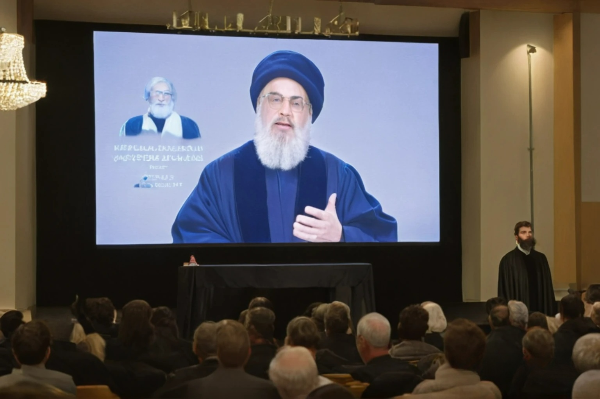Iran’s Plan to Strike Back Against the U.S.
Iran’s Military Preparations Following U.S. Attacks
Loading...

Addressing a rally in Beirut on the occasion of Ashura
Sayyed Hassan Nasrallah, the secretary general of Lebanon’s Hezbollah resistance movement, issued a stern warning to Israel, cautioning against the dire consequences of a potential ground invasion of Lebanon. Nasrallah's remarks, delivered on Wednesday, highlighted the escalating tensions and the potential for extensive damage in the event of war.
Nasrallah's speech emphasized the gravity of the situation, stating, "If your tanks come to Lebanon and south Lebanon, you will not have a shortage of tanks, as you will no longer have any tanks left." This ominous message underscored the seriousness with which Hezbollah views the prospect of further aggression from the Israeli regime.
The ongoing conflict between Hezbollah and Israel has resulted in deadly exchanges of fire since early October of the previous year. The conflict was sparked by the Israeli regime's genocidal war against the Gaza Strip, following the surprise operation by Gaza’s resistance groups known as al-Aqsa Storm.
Hezbollah has vowed to retaliate against the Israeli regime as long as its war on Gaza persists, a conflict that has tragically claimed the lives of over 38,700 Palestinians, predominantly women and children. Nasrallah highlighted the toll that Hezbollah's operations have taken on the Israeli regime, citing sobering statistics, including casualties, amputees, the paralyzed, the blind, and those suffering severe psychological trauma.
In response to the continued aggression against Gaza, Nasrallah affirmed Hezbollah's commitment to maintaining an active front in Lebanon. He also cautioned that should the Israeli regime persist in its aggression, the Lebanese resistance would target new Israeli settlements that were previously untouched.
Nasrallah also pointed out the significant involvement of resistance groups from Yemen and Iraq in launching retaliatory operations against the Israeli regime. He highlighted the impact of Yemeni operations targeting Israeli ships and vessels heading towards the ports of the occupied Palestinian territories, leading to serious repercussions for the entity, including a blockade on the port of Eilat and soaring shipping prices.
The Hezbollah leader remarked that Israel is currently experiencing its "worst days," unable to achieve its goals and resorting to committing massacres and killing civilians to cover up its failures. He described the regime as suffering on multiple fronts, including its army, security service, political parties, immigration, self-confidence, the people’s confidence, and the world’s view of it, attributing these setbacks to relentless fighting and steadfastness.
Nasrallah held the United States fully responsible for the deadly aggression waged by the regime against Gaza, citing Washington’s unreserved arms support for Tel Aviv. His statements underline the complex web of geopolitical dynamics and power struggles that continue to shape the volatile situation in the region.
Editor
Iran’s Military Preparations Following U.S. Attacks
Troops remain in five strategic locations, raising fears of renewed tensions and long-term occupation.
Opposition forces have taken control of the capital after a significant offensive. Here is how it unravelled.
